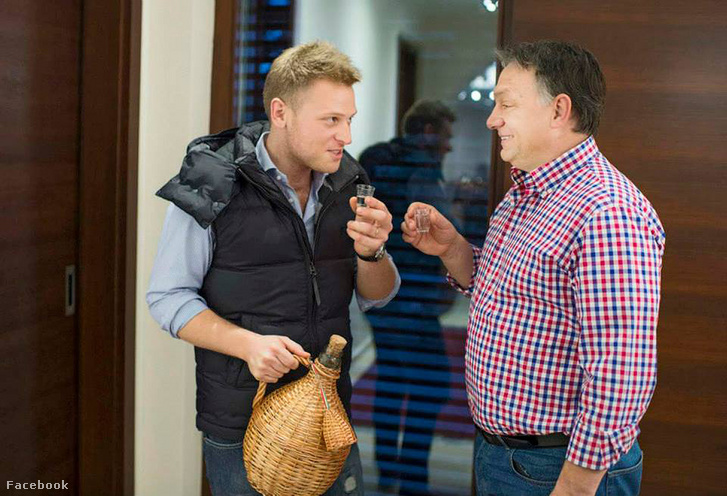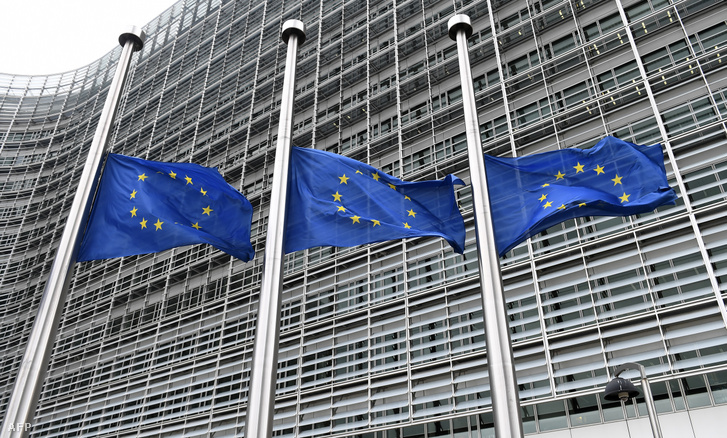European Commission held surprise inspection at former company of Viktor Orbán's son-in-law

Independent sources confirmed to Index that the European Commission held surprise inspections at five Hungarian companies in March. One of the companies visited by the inspectors was Elios Zrt., the former company of Prime Minister Viktor Orbán's son-in-law, István Tiborcz. Elios was previously investigated by OLAF for suspicious EU-funded streetlight projects. The current inspection is a part of a long-running, different investigation that is meant to find out if the company had cooperated with competitors to share the market.
Inspectors of the European Commission's Directorate-General for Competition made their surprise appearance at the offices of the five companies on the same day and at the same time, confiscated electronic devices, and examined hard drives.
The inspectors were looking for evidence to see if these companies have cooperated to share the market amongst themselves.
Market sources confirm that one of the companies involved in the inspection was Elios Zrt. that has also been under investigation by the European Anti-Fraud Office (OLAF) for unlawful use of EU funds. The current inspection is related to a different investigation. The European Commission suspects that the conduct companies winning public procurement procedures along with Elios Zrt. was also unlawful regardless of how EU funds were used, as these companies could have agreed to split the market up amongst themselves. If this suspicion is proven to be true, and these companies have indeed set the pricing of goods and services artificially and have thus distorted competition, they can expect large fines.
The previous investigation by OLAF
It was revealed in January 2018 that OLAF, the agency investigating the fraudulent or irregular use of EU funds had been looking into suspicious public procurement procedures in Hungary completed between 2011 and 2015 that decided about EU funds for streetlight modernisation projects. Owned by Orbán's son-in-law István Tiborcz at the time, Elios Zrt. was involved in these projects right from the start, and steered the procurements in a direction that made sure that municipalities awarded the contracts to them, as explained in this video:
In the end, OLAF suggested the European Commission to withdraw all funds spent on these projects. The report concluding the findings of the investigation had never been officially published, but the contents are known from 24.hu's report on the copy they've managed to acquire.
Following the completion of the report, the Hungarian government had a chance to enter into a negotiation process with the European Commission. They could have argued to prove that EU funds were used in a legitimate way, and they could even have made a settlement with the Commission to only reduce, but not completely withdraw the funds spent on the projects, but that is not what happened: it was revealed in February that the government did not send the projects' invoices to the Commission and thus let go of their EU funding completely.
"That is basically confession that the business interest of István Tiborcz, son-in-law by trade, had been unlawfully and corruptly snatching up EU money,"
Párbeszéd's MEP, Benedek Jávor summarised the events in his Facebook post revealing the government's apparent decision to not include the invoices connected to Elios projects in the package sent to the Commission.
At the time, the Ministry of Technology and Innovation said that it is business-as-usual that a country prefinances more projects than what the EU ends up actually funding, as there are always projects disputed by the European Commission. They claimed that there is nothing surprising in the omission of these invoices.

With this, the ministry confirmed that the government did indeed not submit the invoices from Elios. The ministry stated that this decision does not mean less EU funds for Hungary:
"WE HAVE SPENT 110% OF THE AVAILABLE FUNDS, AND IN THE END, 100% OF THE AVAILABLE FUNDS WERE SPENT ON PROJECTS NOT DISPUTED BY THE COMMISSION."
The current investigation protects competition
The inspections this March were not aimed at the misuse of EU funds, but to see if companies connected to Elios circumvented competition law. The Commission has jurisdiction over these cases even if the companies were not involved in projects funded by the EU, as such a procedure can start any time if the behaviour of market actors affect trade between member states.
Agreements by which companies split the market up amongst themselves, or set their prices, or stop others from entering the market are hindering competition, and are, therefore, unlawful, and the Commission can decide to fine the companies engaged in such agreements. This fine could be as much as 10% of the company's yearly turnover.
Such cases usually concern huge multinationals: an investigation concluded just last week that BMW, Daimler, and Volkswagen cooperated for years in order to block the development and application of technologies cutting down on emissions of new cars.
The Hungarian authorities found nothing
The Hungarian authorities already investigated Elios back in 2015. That investigation was prompted by LMP's complaint regarding several suspicious elements of the public procurements won by Elios, lke the method how Systrade, a company connected to Elios, helped the municipalities draft the tender invitations in a way Elios could win. Elios was also in connection with Tunsgram-Schréder, the company sold lamps to Elios for prices reduced by half.
The 2015 procedure ended up being terminated by the National Investigation Office after one and a half years, establishing that there was no cartel activity. The decision stated that it is not a cartel if the company tasked with drafting a tender cooperates with the tender's eventual winner, as it happened between Elios and Systrade. It would only be a cartel if competitors cooperated.
What could the European Commission be looking for?
The European Commission's Directorate-General for Competition is usually investigating cases where competitors are suspected to cooperate, and they have been trying to find evidence for exactly that during their inspection in March held at Elios and four other companies.

Surprise inspections are the usual method-of-operation of the Commission, as according to EU law, the inspectors can:
- enter the premises and vehicles of the company in question,
- inspect the business records and all records pertaining to the company's activity,
- make or request copies or extracts of the books and records,
- seal the premises and books as necessary,
- demand explanation from any representative or staff member of the company under investigation about any facts or documents in connection with the subject and aim of the investigation.
The inspectors looking for information on possible violations of competition law are allowed to examine hard drives, discs, servers, phones of the staff, and they perform a software analysis of the acquired data that tries to find evidence by keywords, even amongst remains of deleted files, traces of which can still be found on the drives.
No matter what they find though, this agency is only allowed to use evidence that points to violations of competition law, the Directorate-General cannot take steps if they find evidence of any other crimes. The on-site inspection usually lasts a working week. Inspectors work during the day, after which they usually seal the offices to prevent anyone else from accessing evidence during the night.
The most important difference between the current investigation and the one OLAF carried out earlier is that while OLAF may reveal some sensitive cases, it is always the local authorities that have to prosecute, while the current procedure will be carried out by the European Commission from start to finish, therefore the affected companies may not enjoy the advantages of playing on the home field.
Who reported the case to the Commission?
Anyone can report suspicious cases to the European Commission if they learn that a company is engaging in business behaviours that hinder competition. Oftentimes it is one of the companies involved that reports the whole organisation, as the Commission tends to reward cooperation during the investigation with some leniency.
In the current case, it is also a possibility that the Directorate-General noticed that there may be other irregularities following OLAF's 2018 report.
What other companies could be affected?
Hungarian investigative site Átlátszó.hu looked through documents of hundreds of public procurements related to streetlight modernisation, conducted interviews with other companies on the same market, and found that an extended network of companies must have cooperated in order to win these tenders.
The site found numerous bidders that worked with Elios in other projects as consortium partners or subcontractors. If these companies did not participate in these tenders as actual competitors but as cooperators, that alone fulfils the definition of prohibited restriction of competition. The investigation has no legal deadline, and the European Commission has declined to comment on the matter.
(Cover: János Bődey / Index.)
This article is the slightly modified translation of the Hungarian original published by Index.

Support the independent media!
The English section of Index is financed from donations.


